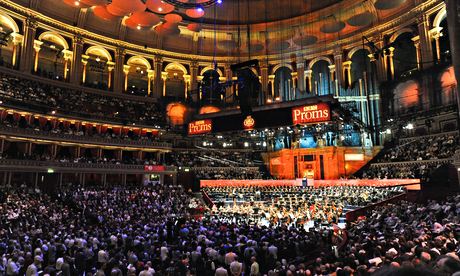
The big question hanging over the Tony Hall's inspirational plans for "putting the public in the front row of British culture" is whether his vision of making the arts as central as the news at the BBC is broadly shared.
Will it meet with a welcoming, needy response from audiences, longing for access to the world of Glyndebourne, the Hay-on-Wye literary festival and the Royal Academy Summer Exhibition, as well as, say, the Rolling Stones at Glastonbury and the Last Night of the Proms, current fixtures? And will the vision be embraced by his own ratings focused TV executives, who have developed sophisticated ways of arts sabotage?
I've watched for decades as promising arts programmes such as The Late Show, were strangled (in 1995) or languished unloved. The BBC2 Culture Show limped on air (2004) and was then moved three times. A broadcast of Richard II from the Globe was one of BBC4's key launch programmes in 2002 but after that, little happened.
Grand schemes to partner with cultural institutions – a Mark Thompson idea in the 2006 BBC charter renewal pitch – were slow to produce results bar the hire of arts editor Will Gompertz from The Tate, though The History of the World in 100 Objects, a Radio 4 and British Museum collaboration was great.
It has taken two years for Tuesday's confirmation of a second series of BBC2's award-winning The Hollow Crown, adaptations of three Shakespeare plays produced by Sam Mendes – which BBC Worldwide did not invest in first time round.
All these thoughts flashed through my mind as I listened to Hall's passionate speech on Tuesday. Giving licence fee payers arts content, including is a copper-bottomed public service mission. And BBC2 (currently waiting for a new controller) will be the channel most affected, adjusting its history-heavy schedules. BBC4, with a reduced budget and yoked ever more closely to BBC2 in future, is the designated place for playing out the performances, in effect a ratings-free zone.
One key to Hall's wily determination is that he has created two posts, director of arts and director of music, to enforce the policy, and make the different services work together.
On the positive side, it is already happening: April sees a demonstration of how most bits of the BBC can co-operate exactly as Hall wants, when BBC2, BBC4 and Radio 3 together embark on Eighteenth Century Britain: Majesty, Music and Mischief. Introducing it last month, Radio 3 controller and Proms controller Roger Wright – who it was announced this week is leaving – pointed out that there were strategy meetings, and then there was … just doing things.
Final thought. Much of the policy seems influenced by the cultural patronage pioneered by Sky Arts, which has included televising Hay-on-Wye, opera, performance, classical music concerts, a book show, tours of great exhibitions, coverage of the fourth empty plinth in Trafalgar Square, and a portrait-painting competition.
The BBC faces proposals to share the licence fee in future with other public service providers. Whether or not that happens, Hall's arts policy shows the value of competition.
• To contact the MediaGuardian news desk email media@theguardian.com or phone 020 3353 3857. For all other inquiries please call the main Guardian switchboard on 020 3353 2000. If you are writing a comment for publication, please mark clearly "for publication".
• To get the latest media news to your desktop or mobile, follow MediaGuardian on Twitter and Facebook.

